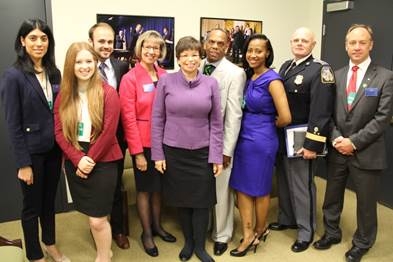Champions of Change Blog
Reaching Out to Underserved AAPI Communities in Pima County, Arizona
Posted by on May 13, 2014 at 1:38 PM EDT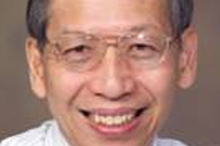
Howard Eng is being honored as a Health in the AAPI Community Champion of Change.
The Pima County AAPI Navigator Program’s primary goal is to reduce the number Asian American and Pacific Islander (AAPI) uninsured in Pima County, Arizona. To accomplish this goal, the program uses both general and specified community cultural, linguistically and appropriate literacy level outreach approaches. The Program works with AAPI community leaders and partners to identify the most appropriate and effective public education and outreach approaches that can be used to reach their communities’ uninsured.
There are many challenges in outreaching to the AAPI populations in Pima County. Some of these include: (1) the AAPI populations are scattered throughout a very large county (larger than New Jersey); (2) many of the AAPI communities are not receptive to outsider interactions; (3) cultural and language barriers; (4) lack of awareness about health coverage availability; (5) limited health literacy; (6) do not see the urgency or the need for health coverage; and (7) even with subsidized coverage with the Health Insurance Marketplace for some AAPI families, it still may not be affordable.
To overcome many of these challenges, the Navigator Program works closely with AAPI community leaders and partners to determine if there is a need for Program assistance to outreach to the uninsured. If there is a need for assistance, the community leaders help to identify the most appropriate and effective public education and outreach approaches that can be used to reached their communities’ uninsured. The program uses cultural, linguistically and appropriate literacy level outreach approaches as well as work within the community culture and structure (e.g., giving public presentations to AAPI community and faith-based groups in English and their preferred language, if needed and providing Marketplace and other health care coverage information booths at AAPI community events). It takes time and patience to overcome the challenges and requires a long term approach in establishing a strong working relationship with the communities.
Looking past open enrollment, from December 2013 to August 2014, the Navigator Program plans to outreach 7 to 8 different Asian American and Pacific Islander communities in Pima County. The Program outreached to the Bhutanese community in December 2013, Marshallese community in January 2014, Filipino and Chinese communities in February-March, and plans to begin outreach to the Asian Indian community in April.
Howard Eng is Assistant Professor and Director of the Southwest Border Rural Health Research Center, Center for Rural Health, The University of Arizona College of Public Health
Learn more about Health CareReaching Rural Hmong Communities
Posted by on May 13, 2014 at 1:36 PM EDT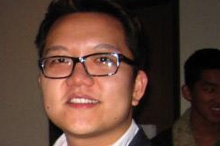
Bruce Thao is being honored as a Health in the AAPI Community Champion of Change.
My family arrived in the United States in December of 1975—greeted by winter in Iowa. Like many other Hmong refugee families, they struggled through poverty, learning a new language, and navigating a maze of systems seemingly built to keep them away from the very services they needed. My parents are proud and resilient and were able to make a better life for us despite having just survived war, refugee camps and leaving all they’ve ever known behind. It is this resilience and indomitable spirit which drives me and my work with Hmong American Partnership (HAP) and its subsidiary, Hmong National Development (HND).
Though the Hmong have come a long way having been in the U.S. for almost 40 years, we still have far to go. In 2010, 1 in 4 Hmong families lived in poverty, which is one of the highest rates across race and ethnic groups in America. In addition, the Hmong community has disproportionately low educational attainment rates and high rates of death from cancer and incidence of other ailments such as Hepatitis B, stroke, diabetes and gout. These health disparities can partly be attributed to a lack of health insurance and not receiving preventative care. By the time they are in front of a doctor they may be in stage 4 of liver or breast cancer.
When the Affordable Care Act passed, HAP and HND knew we had to get information out to our communities, particularly for the growing Hmong communities in Minnesota, California, and the South. While states like California, Minnesota and Wisconsin continue to have the highest Hmong populations (over 200,000 in these three states), we have seen an exponential increase in the Hmong population in the South (now over 20,000 Hmong in southern states). They are located in rural communities that do not have the capacity or infrastructure to provide healthcare outreach or education to the Hmong.
The majority of the Hmong in the South lack health insurance, many had never heard of the Affordable Care Act, and are illiterate in both Hmong and English. So we knew we had a tough task to tackle. In Arkansas, Missouri and North Carolina, HND conducted outreach and created relationships between Hmong community leaders, enrollment agencies and healthcare providers, identifying language assistance and interpreters where available. Through community meetings and conference lines, we connected communities across states and rural areas to educate them. To date we have provided education and outreach to over 500 Hmong farmers and families in the South that otherwise have been unreachable by mainstream agencies.
The keys to our success lie in leveraging community leaders and ethnic media and the power of word of mouth. Our history as a persecuted ethnic minority group has forced us to rely on oral tradition to carry our heritage and our identity. We utilize radio, conference lines, word of mouth and the power of story to get the word out to our communities to know that there are resources available and ways to receive healthcare. Our combined national efforts have resulted in close to 20,000 Hmong and other Southeast Asians learning about the Affordable Care Act and over 2,000 receiving healthcare coverage across the country.
Bruce Thao is Director of Programs for Hmong American Partnership (HAP) and Hmong National Development (HND).
Learn more about Health CareHelping AAPI Immigrants and Refugees in Pennsylvania Get Covered
Posted by on May 13, 2014 at 1:32 PM EDT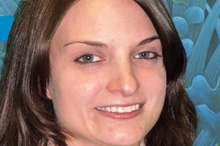
Amy Jones is being honored as a Health in the AAPI Community Champion of Change.
The Affordable Care Act provided a long-awaited opportunity for many Americans to finally get affordable health insurance. With over 50,000 uninsured Asian Americans, Native Hawaiian and Pacific Islanders (AAPI) living in Pennsylvania, 45% of whom lived in Philadelphia, the Affordable Care Act was a turning point for our communities. However, we also anticipated that due to language barriers, low-literacy, confusion about the policy and application process, limited computer skills, and lack of someone who spoke their language to provide in-person enrollment support, many immigrants/refugees would be unaware of the Affordable Care Act and how it would impact them.
In the winter of 2013, SEAMAAC was awarded a grant to engage partner organizations and Asian immigrant/refugee community members around the issue of health care access and health insurance enrollment in Philadelphia. In the spring, we began reaching out to community-based organizations (CBO), faith-based organizations and leaders, local and national advocacy organizations, health care providers, community leaders, small businesses, and physicians, professors, and students from local universities to prepare for the first Open Enrollment Period. Over the summer, we worked with this group to conduct an assessment to gauge the communities’ awareness of the Affordable Care Act, their questions, and their suggestions for outreach, education, and enrollment support. We used a literature review, focus groups, and key informant interviews to conduct this assessment.
The results of this community assessment helped us design appropriate enrollment and community education/outreach strategies. SEAMAAC and partners created outreach and education materials (translated into Chinese, Vietnamese, Laotian, Nepali, Indonesian, Burmese, Karen, and Chin). We worked closely with Nationalities Services Center, to design educational workshops that other CBOs and leaders could use in their communities. From October 2013 to March 2014, SEAMAAC staff conducted 16 Community workshops educating over 700 immigrant/refugee community members. We have educated almost 1,300 community members through general community outreach, and nearly 30,000 through media sources.
In the fall, SEAMAAC became a Certified Application Counselor (CAC) Organization. However, we knew that we could not help enroll everyone by ourselves. In collaboration with Jefferson University and Nationalities Services Center, we conducted a CAC Training for bilingual staff and community leaders ensuring that there were CACs in Philadelphia bilingual in English and Mandarin, Vietnamese, Khmer, Indonesian, Laotian, Hmong, Thai, Nepali, Burmese, Karen, and Chin. SEAMAAC and partners also engaged local Navigator organizations to ensure that they held office hours in immigrant and refugee communities. Throughout Open Enrollment, SEAMAAC CACs and Navigators groups assisted over 450 immigrant/refugee families apply for health insurance through the Marketplace.
Amy Jones is the Director of Health & Social Services for Southeast Asian Mutual Assistance Association Coalition (SEAMAAC), Inc.
Learn more about Health CareCreating Partnerships and Coalitions to Serve a Diverse Community
Posted by on May 13, 2014 at 1:30 PM EDT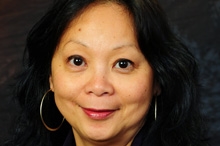
Teresita Batayola is being honored as a Health in the AAPI Community Champion of Change.
Forty one years ago, idealistic community volunteers and student activists came together to create a free clinic for low-income, isolated Chinese and Filipino elderly in Seattle’s Chinatown-International District. As waves of immigrants and refugees sought refuge and a home in the Seattle area, ICHS stepped up to embrace new populations with high-quality, affordable healthcare. That tradition of activism, volunteerism and inclusiveness continues to be vibrant today.
During the movement for health care reform and the passage of the Affordable Care Act, ICHS networked with coalitions around the state to organize, provide patient stories and testimonies, and contact national and state legislators. Once the Affordable Care Act passed, ICHS advocated for Washington State’s adoption of expanded Medicaid and the establishment of the State’s Benefit Exchange through postcard and phone-in campaigns, meetings with elected officials, patient stories, media visibility, and engagement of non-traditional health care partners. However, elation for Washington’s decision to expand Medicaid and create a Health Benefit Exchange was short-lived as ICHS quickly shifted gears to prepare for outreach and enrollment.
ICHS knew that enrolling patients, families and community members into the new programs would be a challenge due to the number of immigrants and refugees who had limited English proficiency, varying immigration status, the mixed eligibility for members in the same family, the lack of understanding about insurance and western health care, and uneven financial abilities to maintain coverage. Nevertheless, the ICHS team of community advocates, health educators, eligibility workers and others began planning outreach and enrollment even with the uncertainty of any funding available. Thankfully, ICHS successfully obtained funding from the federal government and a private foundation to hire 6 In-Person Assisters. ICHS leveraged the funding to obtain training and certification for 25 staffs to provide in-person assistance.
ICHS’ in-person assisters, community advocates, health educators, and eligibility workers worked to actively help anyone learn about health reform and apply for insurance. All of these staff are bilingual and bi-cultural and provide enrollment support in at least one Asian or Pacific Island language, including Cantonese, Khmer, Korean, Mandarin, Punjabi, Samoan, and Vietnamese. ICHS also partnered with community based organizations, faith-based organizations, grocery stores, community centers, and libraries to meet the community need, sending staffs to train others and scheduling field enrollment sessions in addition to appointments in ICHS clinics. An example of a key partnership is with the City of Bellevue’s mini City Hall located in a shopping center. The mini City Hall provided space for the in-person assister and assistance with Russian and Spanish languages, while another partner, Chinese Information and Service Center, provided Chinese interpretation. ICHS staffs remained positive throughout enrollment even when faced with the challenges of appointments longer than an hour due to interpretation and the complexity of individual or family status, combined with the technical challenges of the Exchange.
Teresita Batayola is the Chief Executive Officer of International Community Health Services (ICHS) in Seattle, Washington.
Learn more about Health CareWhite House Champions of Change for the Future of American Agriculture
Posted by on April 15, 2014 at 7:18 AM EDTIn the field of agriculture, we have a very important question to ask ourselves: who will the next generation of farmers and ranchers be?
For more than three decades, the share of farms operated by beginning farmers has been in decline. Beginning farms and ranches accounted for 22 percent of the nation’s 2 million family farms and ranches in 2012—down from about 35 percent in 1982. Consistent with this trend, the average age of principal farm operators in the United States has risen in that period, from 51 to 58.
Since day one, the Obama Administration has supported opportunities for people who want to work the land and produce food, fuel, and fiber for our country. The Administration continues to make these critical investments because of the great innovation and promise that agriculture holds.
The White House will be hosting a Champions of Change event to celebrate local agriculture leaders who are taking innovative approaches to support American farming and ranching—both now and in the future. These leaders will be invited to the White House to celebrate their accomplishments and showcase their actions to support the future of agriculture.
Today, we’re asking you to help us identify these standout local leaders by nominating a Champion of Change for the New Generation of American Agriculture by noon on Friday, April 18. These Champions may be:
- Beginning farmers and ranchers using innovative practices and techniques to create productive and sustainable farms and ranches that will feed people at home and abroad long into the future.
- Producers, foresters, small-business owners, and scientists using Farm Bill programs to drive agricultural productivity and economic competitiveness.
- Local leaders that are working to build new opportunities for those who want to work on the land, create innovation in the field of agriculture, support diversity in agriculture, and connect a new generation to their food, fiber, fuel, and agricultural neighbors.
Click on the link below to submit your nomination (be sure to choose “Future of American Agriculture” in the “Theme of Service” field of the nomination form).
Nominate a Champion of Change for the Future of American Agriculture
We look forward to hosting this event at the White House this spring, highlighting the great work of our nation’s agriculture leaders. Thank you for your dedication to American agriculture and the overall wellbeing of our rural communities.
Gun Violence Prevention Champions of Change: #ActForOurKids
Posted by on April 10, 2014 at 5:56 PM EDTLast Thursday, parents, youth, advocates and community and national leaders from across the country came together at the White House to honor nine Champions of Change who have dedicated their lives to innovative approaches to reduce gun violence and make our communities safer.
Among the honorees and attendees were victims of gun violence, parents whose children were killed by senseless gun violence and individuals whose siblings, friends and neighbors were killed or have been victims of gun violence.
One of the honorees, Mark Barden, became an outspoken advocate for gun law reform after his 7-year-old son was killed at Sandy Hook Elementary School. At the event, Mr. Barden held a photo of his family, which included all three of his children, and shared that, like many across the nation, gun violence did not become a real issue for him until it hit home. He explained that the loss of his son was a turning point in his life, and he has now dedicated his life to make sure no one else has to face this pain.
Each of the attendees had a personal motivator for their hard work. Reverend Glenn Grayson was motivated by the murder of his 18-year old son, and explained that he used that tragedy as a source of empowerment to show youth that they can make more of their lives than what the media, community, or society presents to them.
Pamela Simon, Community Outreach Coordinator for Congresswoman Gabrielle Giffords, also shared her story as a survivor. On January 8, 2011, while staffing the Congresswoman, Pam was shot in the arm and the chest. She shared with the audience that, “those bullets hit Democrats and Republicans alike,” and that the rift between both parties on this issue is a detriment and danger to this nation.
Each of these champions used their personal motivations and exposures to tragedies at the hands of irresponsible weapons use as a force of change in their communities. From creating organizations to rallying local, faith-based, or educational communities, these Champions of Change used their resources and voices to implement change across the United States for a more secure and responsible political, educational, and social environment for our children.
Read more about them and share their stories here.
Rumana Ahmed is the Executive Assistant to the Director of the Office of Public Engagement.
- &lsaquo previous
- …
- 22
- 23
- 24
- 25
- 26
- 27
- 28
- 29
- 30
- …
- next &rsaquo
White House Blogs
- The White House Blog
- Middle Class Task Force
- Council of Economic Advisers
- Council on Environmental Quality
- Council on Women and Girls
- Office of Intergovernmental Affairs
- Office of Management and Budget
- Office of Public Engagement
- Office of Science & Tech Policy
- Office of Urban Affairs
- Open Government
- Faith and Neighborhood Partnerships
- Social Innovation and Civic Participation
- US Trade Representative
- Office National Drug Control Policy
categories
- AIDS Policy
- Alaska
- Blueprint for an America Built to Last
- Budget
- Civil Rights
- Defense
- Disabilities
- Economy
- Education
- Energy and Environment
- Equal Pay
- Ethics
- Faith Based
- Fiscal Responsibility
- Foreign Policy
- Grab Bag
- Health Care
- Homeland Security
- Immigration
- Innovation Fellows
- Inside the White House
- Middle Class Security
- Open Government
- Poverty
- Rural
- Seniors and Social Security
- Service
- Social Innovation
- State of the Union
- Taxes
- Technology
- Urban Policy
- Veterans
- Violence Prevention
- White House Internships
- Women
- Working Families
- Additional Issues

